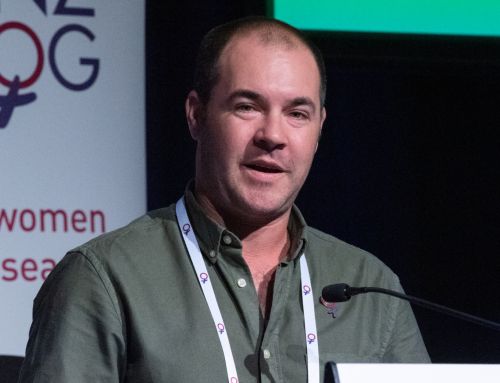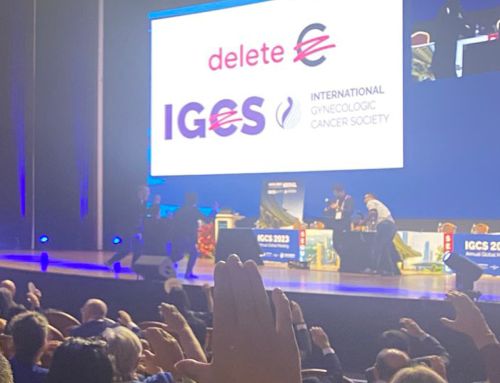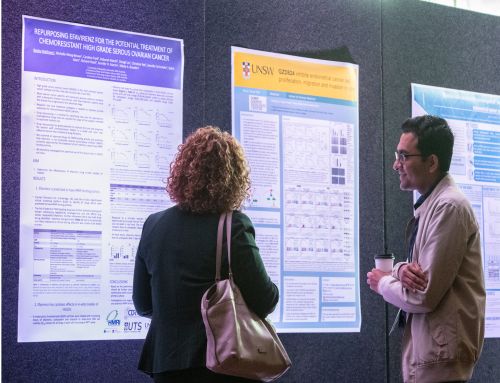Professor Paul Cohen and Associate Professor Yoland Antill present highlights from the recent ESGO’s 25th Congress held in Barcelona, Spain, from March 7-10, 2024.
What is ESGO?
The European Society of Gynaecological Oncology (ESGO) is the leading European organisation with more than 2,500 professionals involved in treatment, care and research of gynaecologic cancers.
Professor Paul Cohen and Associate Professor Yoland Antill attended ESGO’s 25th Congress, along with several other ANZGOG members, and have provided a summary report of the meeting’s highlights. Attending international meetings like ESGO enables ANZGOG to forge strong collaborations and allows members to stay at the forefront of the latest research developments.
Contributed by:
Professor Paul Cohen
ANZGOG – Director,
Chair – Research Advisory Committee

Deputy Chair ANZGOG Research Advisory Committee
Highlights from ESGO 2024
This all-encompassing gynaecological cancer conference with almost 3000 delegates continues to build each year and was packed with excellent education sessions and new research presented in oral, mini oral and poster presentations.
The new ESGO-EOTTD-ISSTD-GCIG Gestational Trophoblastic Disease (GTD) guidelines were presented in a highly informative case-based session. The authors are to be commended for the guidelines’ inclusiveness and global applicability. They include 16 management flow diagrams, definitions, and consensus on what a GTD centre should look like. Another excellent session was the presentation of the new ESGO-EURACAN-GCIG Uterine Sarcoma Guidelines.
Endometrial cancer
We saw the first results from LEAP-001, comparing standard Carboplatin Paclitaxel chemotherapy with the novel Pembrolizumab Lenvatinib combination in recurrent or advanced endometrial cancer in the first-line setting. Unlike all the other first-line immune therapy combination trials the investigational combination did not improve overall OS or PFS compared to standard chemotherapy. Only the subgroup that had previously received combined chemotherapy showed a benefit from the immune combination, which is now recognised as the standard second line therapy in Australia. Other immune therapy updates included the quality-of-life (QOL) assessment in the RUBY trial that showed no significant difference between the two study arms in the all-comer population and a delay in time to deterioration in QOL among the dMMR participants in the investigational Dostarlimab arm. In the AtTEnd trial yet another trial with a subgroup analysis suggesting a reduced sensitivity to the immune combination arm among Asian participants (also seen in DUO-E and NRG-GYN018).

Associate Professor Yoland Antill presenting a poster on the PHAEDRA study at ESGO
Cervical cancer
In the Best Oral Session on Cervical Cancer final overall survival data from the SENTIX trial were presented. SENTIX was a single arm prospective observational trial of sentinel lymph node (SLN) biopsy in patients with clinically early stage cervical cancer conducted at 47 sites in 18 mostly European countries. 694 patients were enrolled, and the bilateral SLN detection rate was 92%. The 2-year recurrence rate and overall survival (OS) were comparable to lymphadenectomy and OS was 98%. The recurrence rate at 2 years was 6.6% which compares favourably with an analysis of more than 8700 patients that showed a median recurrence rate of 7%. The recurrence rate at 47 months in SENTIX was 9.7%. SENTIX is the largest prospective study of SLN in cervical cancer and highlights importance of ultra-staging. The randomised SENTICOL 3 trial has almost completed accrual and will be very important study.
Ovarian cancer
In ovarian cancer there was some interesting discussion over the use of antibody drug conjugates (ADCs) with patient reported outcomes from the Mirasol trial (Mirvetuximab) indicating an improvement in QOL for the ADC arm vs chemotherapy. Importantly the tool used (EORTC-QLC E30) may be too broad and perhaps misses some ADC-specific adverse effects including unique ocular toxicities, highlighting a need to improve or include scales to assess for specific treatment related adverse events. In the UPLIFT trial assessing Upifitamab Rilsodotin, a novel NaPi2b-directed ADC, the “off target” effects were serious with uncontrolled and fatal bleeding in a number of participants that resulted in early termination of the trial and no planned further investigation of this agent in its current formulation. Discussion around on and off target effects were engaging and an important consideration in these developing agents.
Finally, and one of the highlights of the conference, was the presentation from the Leuven Group reporting on their ‘Leuven PARPi Benefit Test’ for assessing HRD in ovarian cancers. They utilised samples from the PAOLA-1 trial using their previously reported and academically developed test together with an additional 44 genes further characterising tumours likely to respond the use of PARP inhibition or not. The test was able to reduce both the number of false positives and false negatives, giving clinicians an easier to interpret “Yes/No” as the test outcome rather than a score within a scale. They welcome the opportunity to validate the assessment from other trials.
ANZGOG is committed to keeping members up to date with the latest developments in global gynaecological oncology. Thank you to Prof Paul Cohen and A/Prof Yoland Antill for providing this report. We look forward to sharing more reports with members in 2024.











